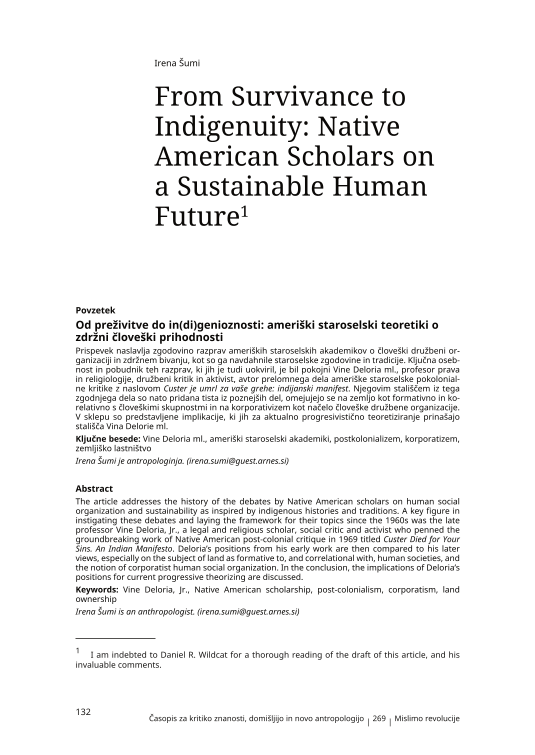The article addresses the history of the debates by Native American scholars on human social organization and sustainability as inspired by indigenous histories and traditions. A key figure in instigating these debates and laying the framework for their topics since the 1960s was the late professor Vine Deloria, Jr., a legal and religious scholar, social critic and activist who penned the groundbreaking work of Native American post-colonial critique in 1969 titled Custer Died for Your Sins. An Indian Manifesto. Deloria’s positions from his early work are then compared to his later views, especially on the subject of land as formative to, and correlational with, human societies, and the notion of corporatist human social organization. In the conclusion, the implications of Deloria’s positions for current progressive theorizing are discussed.




